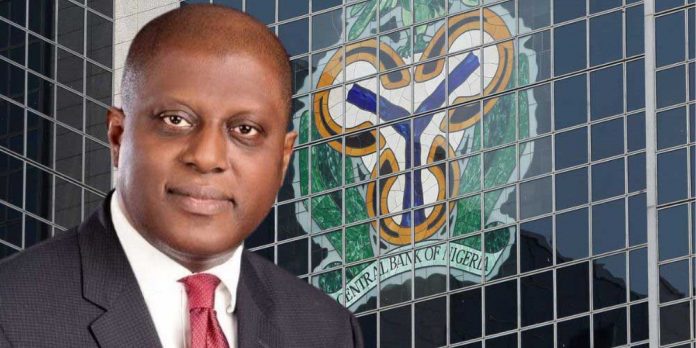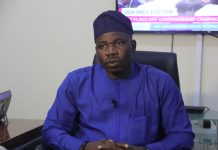Credit to the Nigerian government surged by over N11 trillion in August 2024, driven by increasing interest rates that have made government securities more attractive to investors. This development is highlighted in the Central Bank of Nigeria’s (CBN) latest money and credit statistics, revealing a shift in the credit market dynamics as the government relies more heavily on local borrowing to fund its expenditures.
According to the CBN data, government credit accounted for 29.4% of the N105.88 trillion net domestic credit in August, underscoring the government’s growing dependence on local borrowing amid rising costs in external debt servicing. Simultaneously, credit to the private sector saw a slight decline as businesses grapple with the higher cost of borrowing resulting from the CBN’s sustained interest rate hikes.
Government Credit Spikes While Private Sector Credit Declines
In August 2024, credit to the government reached N31.15 trillion, a sharp increase from N19.83 trillion in July. This represents a significant growth of N11.33 trillion, or 57.1%, in just one month. The surge is attributed to the increased attractiveness of government securities, fueled by higher yields resulting from ongoing interest rate hikes by the CBN.
By comparison, in August 2023, government borrowing stood at N22.51 trillion. Over the past year, government credit has risen by 38.5%, reflecting the growing reliance on debt to finance public expenditures.
Meanwhile, credit to the private sector in August 2024 dropped to N74.73 trillion, down from N75.51 trillion in July. This represents a modest decline of about N780 billion, or 1.03%. Although the reduction is small, it highlights the impact of rising borrowing costs on businesses, which are increasingly cautious about taking on new debt.
In August 2023, private sector credit was significantly lower at N56.95 trillion, showing that while there has been an overall increase in private sector borrowing over the past year, the escalating cost of debt is starting to weigh on businesses’ willingness to borrow further.
Impact of Rising Interest Rates
Under CBN Governor Yemi Cardoso, the Monetary Policy Rate (MPR) has been raised five times in an effort to combat inflation and stabilize the economy. The first hike increased the rate from 18.75% to 22.75%, followed by subsequent hikes, with the most recent increase in September 2024 raising the rate by 50 basis points to 27.25%. These hikes, amounting to a total of 850 basis points since Cardoso’s appointment, have reshaped the credit market by making government securities more attractive due to higher yields, while raising the cost of borrowing for the private sector.
The higher interest rates have led to a surge in government borrowing, as investors increasingly favor the relatively low-risk government securities with higher returns. However, businesses, particularly those in the private sector, are finding it more expensive to borrow, which could stifle economic growth if affordable credit remains inaccessible.
Strain on Government Finances
While the government has benefitted from increased demand for its securities, the higher interest rates also come with challenges. As borrowing costs rise, the government will need to allocate more resources to debt servicing, particularly for new bond and treasury bill issuances. This could place additional strain on public finances, as more revenue is directed toward interest payments, potentially limiting funds available for critical expenditures such as infrastructure, social services, and development projects.
Shift in Borrowing Strategies Under the Tinubu Administration
The administration of President Bola Tinubu has leaned heavily on the domestic debt market, particularly through the issuance of treasury bills, to fund short-term obligations. This marks a significant departure from the previous administration under Muhammadu Buhari, which relied more on CBN’s Ways and Means Advances.
Data from the Debt Management Office (DMO) shows that Nigeria’s Treasury Bills debt reached N10.4 trillion, a 60% increase in just three months. The CBN incurred an estimated N1.55 trillion in interest payments from 12 successful Treasury Bills auctions conducted in the first half of 2024, a dramatic rise compared to N205.63 billion during the same period in 2023.
Treasury Bills worth N8.4 trillion were sold by the CBN in the first six months of 2024, with tenors ranging from 91 to 364 days. Stop rates, or interest rates accepted from bids, ranged from as low as 2.44% for 91-day bills to as high as 21.49% for 364-day bills.
Concerns About Economic Growth
The Lagos Chamber of Commerce and Industry (LCCI) recently raised concerns over the impact of high interest rates on the private sector. It warned that excessive funds are being drawn away from private businesses into government treasuries, which could undermine economic growth.
Dr. Muda Yusuf, Director-General of the Centre for the Promotion of Public Enterprise (CPPE), called on the CBN to provide more development finance for businesses to offset the effects of high interest rates. He emphasized the need for single-digit interest rates to drive the Nigerian economy forward.
Similarly, Alhaji Aliko Dangote, President of Dangote Group, has warned that no significant economic growth will occur unless interest rates, which currently hover around 30%, are reduced. Dangote also advocated for better protection of local industries, particularly in the manufacturing sector.
Outlook
While the CBN’s monetary tightening has succeeded in curbing inflationary pressures, concerns remain about the long










